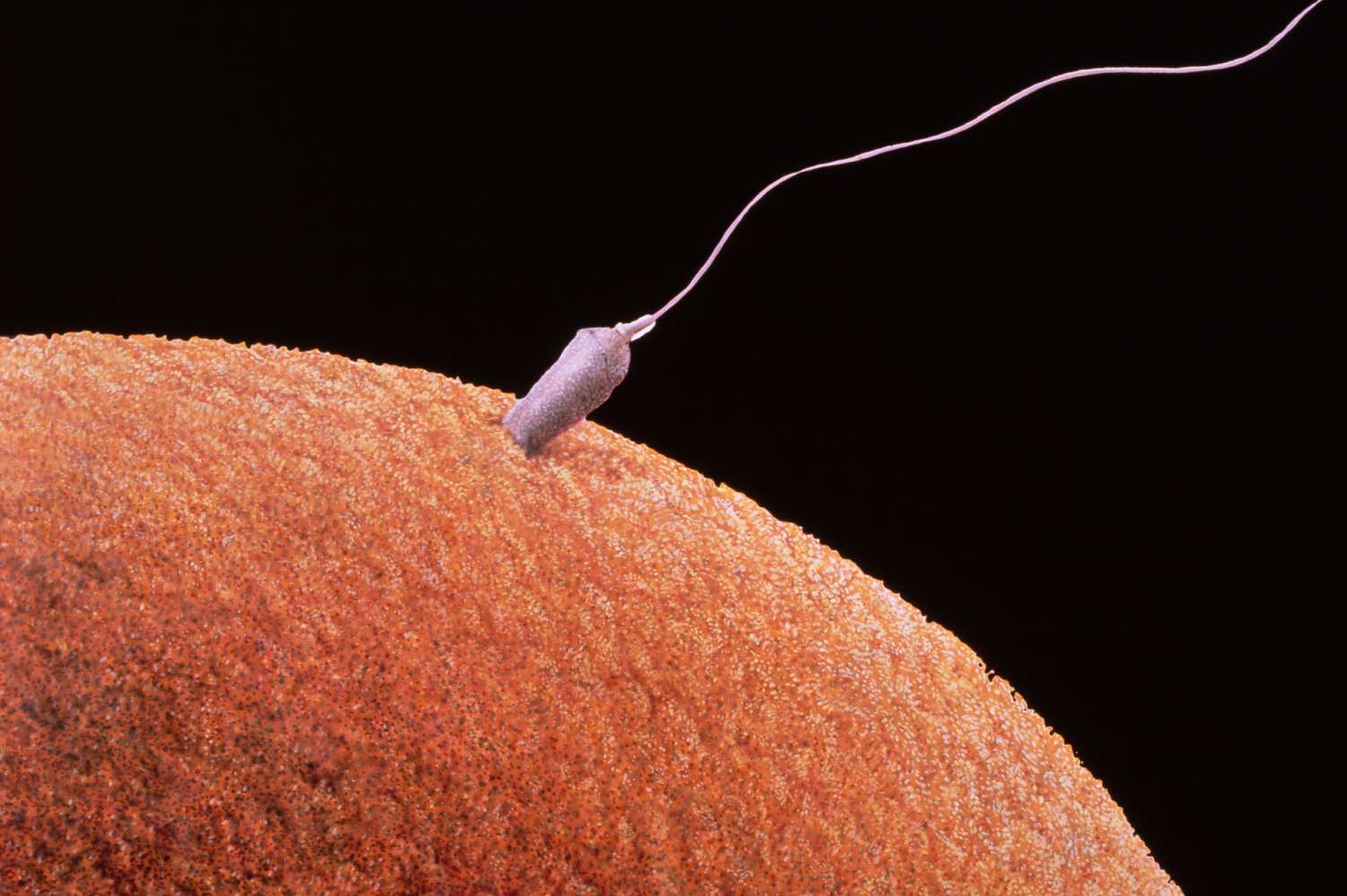Health
Breaking the Cycle – How Addiction Treatment Changes Lives

Breaking the addiction cycle takes determination, commitment, and time. People must change their lifestyle habits and attend recovery meetings regularly to achieve this. They must also cultivate new relationships and participate in activities they enjoy.
During treatment, individuals can learn healthier coping skills by participating in group therapy and one-on-one counseling with mental health professionals. This will help them identify their triggers and discover the root causes of their substance abuse.
Addiction is a brain disease.
Like diabetes or heart disease, addiction is a chronic disease that can be managed but not cured. People who struggle with drug and alcohol use disorders are often unable to maintain their relationships or work and often have trouble finding housing or supporting their education. Fortunately, these individuals can recover and lead healthy, productive lives with the proper addiction treatment Yorktown Heights NY.
Addiction changes the brain areas responsible for judgment, decision-making, learning, and memory. These changes can result in a good student flunking out, a wife lying about draining the family savings account, or an overdose in a grocery store parking lot while children watch from their car seats.
It is for these reasons that most of the biomedical research community now regards addiction as a brain disease. This is a view that is backed by clear, convincing scientific evidence and has outsized influence on research funding, direction, and how addiction is viewed worldwide.
Addiction is a cycle.
Addiction is a cycle that starts with the use of drugs or alcohol and ends with a compulsion to keep using. This pattern of behavior can cause a significant change in brain function and impair the ability to control one’s impulses. This is why it’s important to recognize addiction as a disease and seek treatment.
The cycle begins with the binge/intoxication stage when the person takes enormous amounts of their drug of choice in a short period (these periods are known as “binges”). This phase triggers changes in brain reward and stress neurotransmitter systems, impairing executive function.
This impulsive behavior is followed by the withdrawal/negative affect stage, which is characterized by unpleasant and sometimes dangerous physical symptoms. This negative reinforcement drives a user to continue abusing drugs to try and alleviate these symptoms, but this only makes the pain worse. The last phase is the preoccupation/anticipation stage when a person becomes obsessed with the desire to use drugs again.
Addiction is a choice.
Addiction is a disease, and it should be treated in the same way as other chronic illnesses, such as diabetes or asthma. The disease model of addiction has gained wide acceptance among most healthcare professionals. It also reflects current research showing that chemical dependency causes changes in the brain, which impair judgment and self-control.
Those who have struggled with substance abuse know how difficult it can be to break the habit. Substance use ruins relationships and careers, and it leads to legal troubles that can make life even more difficult. Many people with an addiction become unable to take care of basic needs, such as paying bills or buying food.
During treatment, you will work with a therapist to resolve the underlying problems that led to drug abuse. You will learn how to cope with negative emotions that used to be dampened by drugs – anger, sadness, stress, loneliness, and frustration. You will also learn healthy coping strategies that help you avoid triggers and stay sober.
Addiction is a problem.
If you know someone with a drug addiction, it’s essential to get help for them. This is because drug use causes a variety of problems for everyone involved. It may also cause severe consequences for their health and well-being. People with a drug problem often don’t recognize that their substance use is causing problems. This is sometimes referred to as denial.
Some factors that lead to the development of addiction include a family history of alcohol or drug abuse, exposure to drugs in school and peer groups, and genetic predisposition. In addition, the availability of drugs and the ease with which they can be obtained increases the risk of drug use.
During treatment, people learn new ways of dealing with stress and pain. They also develop new skills to improve relationships with others. In addition, they are taught how to refocus their life away from drugs and into something more meaningful. They can take up new hobbies or interests, such as playing sports or learning a musical instrument.
Health
7 Benefits of jujube seeds and side effects

Table of Contents
Health
Benefits of coconut water in pregnancy

Discover the benefits of coconut water in pregnancy.
Coconut water is a clear, sweet, energizing isotonic drink that helps your body replenish lost fluids. Also known as Nariyal Pani and Elaneer in India, it is known for its versatility and countless nutritional benefits.
IS IT SAFE TO CONSUME COCONUT WATER DURING PREGNANCY?
Yes, it is safe to drink coconut water, but in moderation, as it contains natural vitamins and minerals.
Having coconut water in the first trimester helps curb dehydration resulting from morning sickness. It’s also good for heartburn and constipation, common symptoms of pregnancy.
You can drink coconut water at any time, but the best time is early in the morning. It is healthier, as the electrolytes and nutrients can be easily absorbed when the stomach is empty.
The nutritional benefits present in a cup of coconut water include:
•Calories 46
•Sodium 252mg
•600mg potassium
•Carbs 8.9 grams
•Dietary fiber 2.6 grams
•Sugars 6.26 grams
•Calcium 6%
Benefits of coconut water in pregnancy
You can reap its benefits only when you consume fresh water, as it begins to ferment when left open and exposed to air.
1. NATURAL DIURETIC:
During pregnancy, uric acid levels should be normal in your body system. Coconut water is a diuretic and increases the need to urinate due to the presence of potassium, magnesium, and minerals.
They help eliminate toxins and cleanse the urinary tract. Thus, it improves kidney function and prevents kidney stones and infections. It also prevents urinary tract infections, which reduces the chances of preterm labor.
2. OFFERS ESSENTIAL ELECTROLYTES:
The need for electrolytes increases during pregnancy because conditions like morning sickness, nausea, and diarrhea dehydrate the body. Coconut water supplies all five essential electrolytes: minerals, sodium, calcium, potassium, and phosphorus, which calm the body and provide energy.
These electrolytes transmit electrical charges in your body and aid in muscle function. They also help maintain your body’s pH levels and control blood pressure levels. It is known to have cooling properties, which prevent conditions such as bilious fever and vomiting.
3. RELIEVES HEARTBURN AND CONSTIPATION:
Hormonal changes during pregnancy lead to various problems like heartburn, constipation, and indigestion. The rich content of dietary fiber in coconut water strengthens the digestive system, improves digestion, regulates pH levels, and prevents constipation.
Ayurveda considers young coconut water to be an excellent laxative. Improves metabolism and detoxifies the body. Coconut water is a natural acid neutralizer and thus prevents heartburn.
4. TREAT INFECTIONS:
Coconut water is rich in vitamins, essential minerals, and antioxidants, which boost your immune levels, providing resistance to infections. It contains lauric acid, a medium-chain fatty acid responsible for the production of a powerful antiviral monolaurin, Michelle-Lee Young writes in the book “Two Trees and Twelve Fruits That Will Change Your Life Forever.” Lauric is a disease-fighting acid that kills harmful bacteria and infections like the flu, and HIV, and retains good bacteria.
5. IMPROVES HEART HEALTH:
Low electrolyte level increases blood pressure. Drinking coconut water improves levels of potassium, magnesium, and lauric acid, which help regulate blood pressure. Improves good cholesterol and fights bad cholesterol.
The vitamins, essential proteins, and electrolytes in coconut water control sugar levels, and blood pressure levels, and improve circulation. A glass of coconut water every day is particularly helpful in the last trimester when there is increasing stress from labor that can increase your blood pressure.
6. MAINTAINS A HEALTHY WEIGHT:
Coconut water is fat-free and low in calories. As pregnancy adds extra weight to your body, coconut water prevents fat accumulation by removing bad cholesterol. It is an excellent replacement for sugary drinks and helps both the mother and the growing fetus to be healthy and fit.
7. NATURAL DRINK:
Coconut water is a tasty natural drink. It has no artificial flavors or harmful components. It is safe for you and your growing fetus as none of its components affect your health.
8. ENERGIZE AFTER TRAINING:
Coconut water is a natural isotonic drink, which helps you gain energy when suffering from dehydration, fatigue, and exhaustion. It is a great revitalizer
. If you exercise regularly to stay fit and strengthen your pelvic muscles, you can opt for coconut water as an energy drink. Hydration also improves skin elasticity, limiting the stretch marks that develop during pregnancy.
9. LOW SUGAR CONTENT:
Excessive sugar intake can lead to an increase in overall blood sugar levels. Coconut water has less sugar than other sports and energy drinks. You won’t gain pregnancy weight, and a diet low in simple sugars will reduce your risk of getting gestational diabetes.
10. ACCELERATES THE GROWTH OF THE FETUS:
Coconut water offers all the nutrients to the mother, essential to maintain and improve her health. Thus, it improves the health, growth, and proper nutrition of the unborn baby.
11. IMPROVES AMNIOTIC FLUID LEVELS:
Drinking coconut water improves the overall health and environment of your growing fetus. Coconut water taken especially in the third trimester increases amniotic fluid levels and improves blood volume and circulation.
ARE THERE ANY SIDE EFFECTS OF COCONUT WATER DURING PREGNANCY?
There is no evidence that coconut water has adverse effects on pregnancy. Like any other fruit or vegetable juice, it also appears to be safe. But there are two things to keep in mind:
•Coconut milk contains sodium, which may not be the right choice for pregnant women with preeclampsia.
•Ripe coconut water can cause constipation.
HOW MUCH COCONUT WATER CAN A PREGNANT WOMAN HAVE?
Moderation is always the key when it comes to eating a healthy diet. You can drink up to a glass of coconut water a day.
Consume the water soon after opening, as a fresh one will contain rich nutrients. Use a clean straw or pour it into a glass and drink.
It is always good to prefer natural coconut water to canned or bottled.
Do not consume coconut water if you react or do not like its taste.
HOW TO SELECT THE CORRECT COCONUT?
To enjoy the various benefits of coconut water, you need to know how to select them properly. These tips can help you buy fresh and tender coconut.
A fresh coconut will be light and sweet and will not contain coconut meat, the white, meaty, tender substance. A ripe or stale one will taste sour.
Selection: Choose medium-sized, clean, green walnuts, as they contain large amounts of water. Don’t choose coconuts that have hard brown shells and gray patches as they indicate ripe nuts.
Water: Shake the coconut vigorously near your ear to check for water. Select the ones that make a good splashing sound. A fresh coconut will contain almost a cup of water.
If you want to store coconuts at home, keep them in a cool place.
BENEFITS OF COCONUT MEAT DURING PREGNANCY:
1. GENERATION OF BREAST MILK:
Regular consumption of coconut meat during pregnancy improves the supply of breast milk after childbirth. Your baby will receive nutritious and rich breast milk. Also, coconut oil helps in the generation of breast milk.
It is also good during the lactation phase as it contains lauric and capric acids. These acids have antiviral, antibacterial, and parasiticidal effects, which protect the baby from diseases.
2. IMPROVES BLOOD CIRCULATION:
Blood volume doubles during pregnancy, causing swelling of the feet and legs. Poor blood circulation aggravates the condition. Coconut consumption improves blood circulation and prevents swelling and pain in the legs.
3. HELPS DIGESTION:
Consuming coconut meat and water prevents constipation as tender coconut meat acts as an excellent laxative. It is one of the best benefits of consuming a coconut in any form during pregnancy.
4. BETTER SLEEP:
Having coconut in combination with poppy seeds and ghee will improve your sleep cycle.
5. INCREASES METABOLISM:
When the coconut is mixed with spices, it helps boost metabolic activities in pregnant women.
COCONUT MILK DURING PREGNANCY:
Coconut milk is a thick, milky liquid obtained by grinding grated coconut meat. It is also an essential ingredient in many foods, especially Southeast Asian dishes.
Coconut can be consumed in any form due to its amazing health benefits. Coconut milk helps increase body fuel. It is completely safe to drink unless you are allergic to it.
BENEFITS OF COCONUT MILK DURING PREGNANCY:
1. ENHANCE IMMUNITY:
Coconut milk contains lauric acid, which is an antibacterial and antiviral fat, useful for pregnant women. This type of fat helps improve the immune system, according to the book “Coconut Oil and the Immune System” by Sherri Neal. The long-chain fatty acids straighten the blood vessels and reduce any blockages in the heart, thus improving the condition of the heart as well.
2. OTHER BENEFITS INCLUDE:
•It contains good amounts of iron, which can treat anemia.
•Improves digestive problems.
•It offers relaxation to the muscles and the nervous system.
•Controls blood sugar levels and blood pressure
•Relieves joint pain and scratches
•Makes your body fit and helps you lose weight
HOW TO PREPARE FRESH COCONUT MILK?
It is advisable to make coconut milk at home instead of opting for a packaged one.
Grate a whole coconut and add a cup and a half of hot water.
Let the mixture cool to room temperature.
Once the mixture cools down, strain to get the milk.
Coconut milk taken directly from fresh coconuts will contain approximately 450 calories and 50 g of fat. A cup of coconut milk (approximately 240 g) has the following nutritional values:
•Calories 550
•Fats 50.2gm (all types of fats)
•Cholesterol 0
•Sodium 40gm
•Carbohydrates 14gm (in 250gm of milk)
•Proteins 6gm
•Vitamin C 11%
•Iron 22%
•Calcium 4%
IS CANNED COCONUT MILK GOOD DURING PREGNANCY?
It’s safe to have canned coconut milk during pregnancy, but you need to make sure the can isn’t corroded, rusted, expired, or stored at dangerous temperatures.
Coconut milk contains considerable amounts of saturated fat, that is, 3 g in a tablespoon. Eating too much-saturated fat will increase the levels of good and bad cholesterol in the body. In the case of canned milk, you must take into account your level of consumption, since you should not exceed your daily requirement.
In addition to the above, other reasons why you may not choose canned coconut milk are:
1. BISPHENOL A (BPA):
It is a chemical that is typically used in the lining of cans used for packaged foods. This BPA can gradually leach into acidic, fatty, or salty foods like coconut milk, vegetables, tomatoes, and soups. One study claims that there is a relationship between high levels of BPA in mothers and neurobehavioral problems in babies.
2. GUAR GUM:
Guar gum is an additive present in canned coconut milk. It is a galactomannan, a polysaccharide, and is primarily a ground endosperm of guar beans.
There have been complaints such as severe abdominal cramps, indigestion, flatulence, and diarrhea, as beans are difficult to digest. In a clinical experiment, patients with intestinal problems showed improvement when they stopped using canned coconut milk in their diet.
3. FRUCTOSE MALABSORPTION:
It is a digestive disease characterized by impaired transport of fructose (a simple sugar found in fruits, vegetables, and honey) through the small intestine. Increased fructose levels in the gut cause bacterial overgrowth.
Therefore, it reduces the absorption of water in the intestine. Pregnant women with inflammatory bowel disease (IBD) and irritable bowel syndrome (IBS) are highly affected by fructose malabsorption.
According to nutrition data, coconut milk contains sugar, including fructose. Therefore, it should be avoided by those affected by IBD and IBS disorders.
Health
Disadvantages of miscegenation reproduction

Table of Contents
-

 Benefits5 months ago
Benefits5 months agoThe Benefits of Joining Gym Lumolog – Improve Your Fitness & Health
-

 Food1 year ago
Food1 year ago10 + Benefits of carrot juice and side effects
-

 Health1 year ago
Health1 year ago50 Super Healthy (And Very Often Cheap) Foods
-

 Health1 year ago
Health1 year ago5 Shocking health benefits of kinkeliba and side effects
-

 Health1 year ago
Health1 year ago15 health benefits of soursop leaves tea and side effects
-

 Food1 year ago
Food1 year ago8 shocking benefits of leek juice and side effects
-

 Health1 year ago
Health1 year ago15 Benefits of lipton tea and side effects
-

 Health1 year ago
Health1 year agoBenefits of guava leaves Sensually
